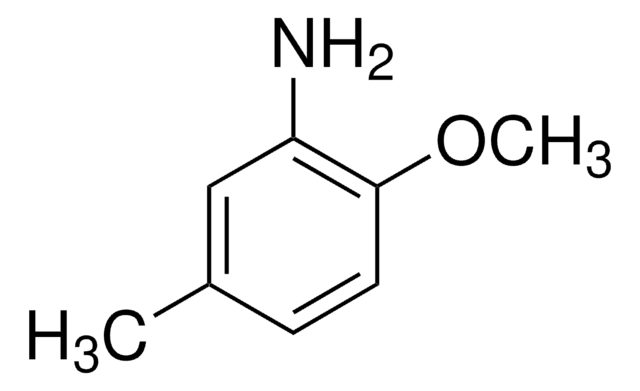31598
4-Aminobiphenyl
analytical standard
Synonym(s):
4-Aminodiphenyl, 4-Biphenylamine, 4-Biphenylylamine, 4-Phenylaniline, Biphenyl-4-ylamine, NSC 7660, Xenylamine
About This Item
Recommended Products
grade
analytical standard
Quality Level
autoignition temp.
842 °F
shelf life
limited shelf life, expiry date on the label
technique(s)
HPLC: suitable
gas chromatography (GC): suitable
bp
191 °C/15 mmHg (lit.)
mp
52-54 °C (lit.)
application(s)
cleaning products
cosmetics
environmental
food and beverages
personal care
format
neat
SMILES string
Nc1ccc(cc1)-c2ccccc2
InChI
1S/C12H11N/c13-12-8-6-11(7-9-12)10-4-2-1-3-5-10/h1-9H,13H2
InChI key
DMVOXQPQNTYEKQ-UHFFFAOYSA-N
Looking for similar products? Visit Product Comparison Guide
General description
Application
It may be used as an analytical reference standard for the determination of 4-aminobiphenyl in:
- Particulate phase mainstream cigarette smoke samples by solid-phase extraction (SPE) and gas chromatography coupled to MS equipped with selected ion monitoring (SIM) mode of detection as well as simultaneous distillation and extraction (SDE) and GC-MS with SIM detection.
- Environmental water samples by hollow fiber-liquid phase microextraction (HF-LPME) and microemulsion electrokinetic chromatography (MEEKC).
- Indoor and outdoor air samples by GC-MS.
Signal Word
Danger
Hazard Statements
Precautionary Statements
Hazard Classifications
Acute Tox. 4 Oral - Carc. 1A
Storage Class Code
6.1C - Combustible acute toxic Cat.3 / toxic compounds or compounds which causing chronic effects
WGK
WGK 3
Flash Point(F)
235.4 °F - closed cup
Flash Point(C)
113 °C - closed cup
Personal Protective Equipment
Choose from one of the most recent versions:
Already Own This Product?
Find documentation for the products that you have recently purchased in the Document Library.
Our team of scientists has experience in all areas of research including Life Science, Material Science, Chemical Synthesis, Chromatography, Analytical and many others.
Contact Technical Service










